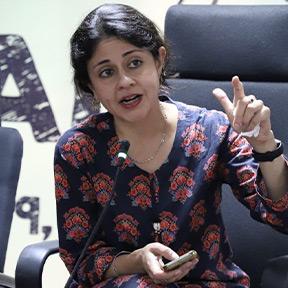Research profile
Nida Kirmani joined LUMS in 2011 and is an Associate Professor of Sociology. She has served as the faculty director of the Saida Waheed Gender Initiative and helped establish the Gender and Sexuality Studies minor at LUMS. Nida has published widely on issues related to gender, Islam, women’s movements, development and urban studies in India and Pakistan. She completed her PhD in 2007 from the University of Manchester in Sociology. Her book, Questioning ‘the Muslim Woman’: Identity and Insecurity in an Urban Indian Locality, was published in 2013 by Routledge. She has also published an edited volume on Marginalisation, Contestation and Change in South Asian Cities with the Oxford University Press in 2022. She is currently co-editing a volume on Gender Studies in Pakistan, which will be published in 2025 with Folio Books. Nida has published extensively about experiences of urban marginality, gender and violence in the area of Lyari in Karachi and also produced three documentaries based on this research. Her current research explores the evolution of the Baloch nationalist movement with a focus on the increasing role of young women as leaders in the struggle.
Recent publications
2024 ‘Manufactured Ambiguity: The Blurry Line between Formal and Informal Authority in Lyari, Karachi,’ The South Asia Multidisciplinary Academic Journal (Samaj).
‘Resisting Erasure: Tweeting against the Practice of Enforced Disappearances in Balochistan,’ Dialectical Anthropology.
2020 ‘Can Fun Be Feminist: Gender, Space and Mobility in Lyari, Karachi,’ South Asia: Journal of South Asian Studies, Vol. 43(2).
‘What You See is What You Get’: Local Journalism and the Search of Truth in Lyari, Karachi,’ with Laurent Gayer, Modern Asian Studies, Vol. 54(5).
2018 ‘Moving beyond the Binary: Gender-based Activism in Pakistan,’ with Ayesha Khan, Feminist Dissent, Issue 3, pp. 151-191.
2017 ‘Resistance and Its Limits: Protesting Urban Violence in Lyari, Karachi,’ Economic and Political Weekly, Vol. LII(7), pp. 41-48.

